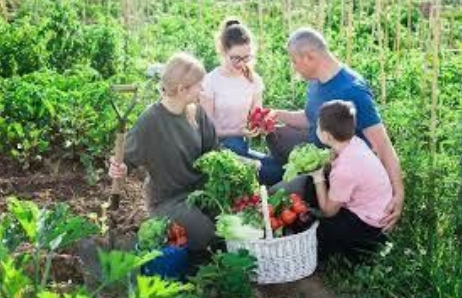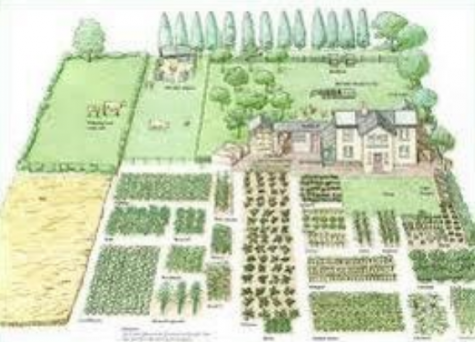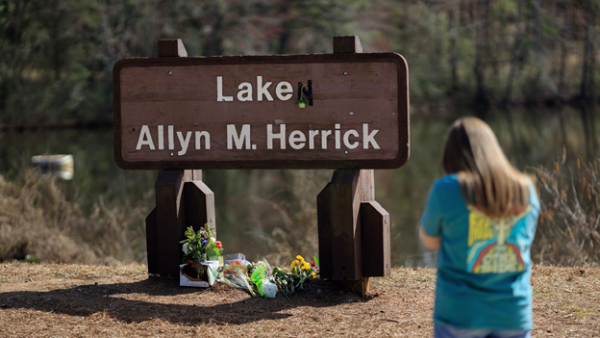Homesteading on the Rise

Image of family gardening by Rural Living Today
With the dawn of Covid, homesteading has become an increasingly popular lifestyle. Homeowners are reverting back to less urban ways of life, seeking comfort in simple living and taking ownership of their physical and mental lives. Homesteaders are believed to have the upper hand in the recent pandemic because they are generally healthier, more active, and more satisfied with their lifestyle than others. They eat better, sleep better, physically work harder, and are aware of their health more than the average person. So, what is homesteading? What about it are urban dwellers becoming so attracted to?
It’s a lifestyle of self-sufficiency, consisting of subsistence agriculture, home preservation of food, and may also involve the small-scale production of textiles, clothing, and craftwork for household use or sale. Amy, the owner of the Tenth Acre Farm homestead, believes “Homesteading is the act of creating a productive home, which can be done no matter the size of the home or the property. While modern culture encourages us to be consumers, we reduce our consumption by growing some of our food (mostly in the front yard!), cooking all of our food from scratch, forming relationships with local farmers and fellow gardeners, and flexing our home economics muscles.” As pointed out by Amy, this way of life is starkly different from the consumer-driven culture we live in today. The principle of homesteading is increased autonomy over one’s life, which is likely to be lost in the 9-5 urban work hustle. When asked about why there’s been an increase in homesteading, Aaron Ward (12) stated, “I think it’s really important for healthy living. Fresh produce, clean rural air, and active use of the body are all great benefits. It’s an interesting alternative for people who want to steer away from their 9-5 corporate job in a big city, and I think that’s what people realized once they were forced to take a step back and observe their life during Covid-19. “

Homesteading laws, originating with the Homestead Act of 1862, typically allowed new settlers to claim at least 160 acres if they improved the land within a certain amount of time and turned it into a viable home for themselves and their dependents. In recent times, the homesteading law states explicitly that your permanent homestead will be protected in a financial crisis. In terms of protection from creditors, you can get up to $100,000, as long as you are the property owner. Although the Homestead Act was repealed in 1976, most states offer Homestead tax exemptions. To begin a modern day homestead, the process begins with extensive planning. Deanna Cat, owner of “Homestead and Chill”, recommends starting small. “I recommended starting a vegetable garden as an early homesteading priority. However, that doesn’t mean I suggest building and installing 15 raised beds all at once! Start a small manageable garden area, especially if gardening is new to you – and leave room to expand later. You’ll continue to learn as you go, and also get a better idea of what you can realistically keep up with. “ Whether you’re in a suburban environment or 10 acres of land, smaller versions of homesteads are attainable and great lessons for larger projects within your homestead. If you have land, a water source, the means to produce vegetation, potential animals, and a spirit willing to learn new things everyday… you can begin your journey into homesteading.
The therapeutic benefits of homesteading are enough to reverse the negative effects of work culture on the human brain. According to research, 80 percent of medical problems in the US are directly related to diet and lifestyle choices, making homesteading an excellent choice for overall health and wellbeing. Homesteaders grow and produce their own food, allowing them to know exactly what they’re consuming and consequently consuming foods with a higher nutritional value. At the same time, The benefits of gardening and time spent with animals is well documented. In fact, horticulture therapy and animal therapy are becoming increasingly more popular in the mental health treatment sphere. Exposure to these elements are known to reduce stress, anxiety, blood pressure levels, and symptoms of mental health disorders.
When asked if they would ever consider homesteading, Wheeler student Sarah Peach (11) said “I have actually heard about homesteading and it’s something I could consider doing when I retire. It could give me a purpose and drive to stay moving, plus health benefits.” For some Wheeler students, homesteading is seen as a viable alternative to urban life. According to Aaron Ward, “Personally, I would be in favor of changing lifestyles if the circumstances of urban life became too intolerable for me. It’s a good escape.” As the younger generations learn the art of homesteading, more people may be exposed to the benefits of this autonomous lifestyle.

Elzie is a junior, and this is her first year in journalism. She was originally a part of the yearbook, but decided she wanted to do more writing. Her...





